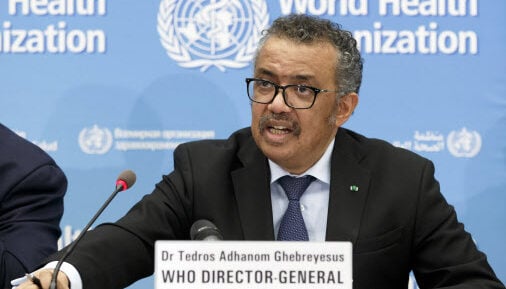The World Health Organization (WHO) revealed in its 2024 Global Hepatitis Report that viral hepatitis infections are the second leading infectious cause of death globally, alongside tuberculosis, claiming 1.3 million lives annually.
The report was released during the World Hepatitis Summit held in Lisbon, Portugal, under the theme “Integrate Accelerate Eliminate.”
Hepatitis, an inflammation of the liver caused by various infectious viruses and non-infectious agents, poses significant health risks, with different strains including A, B, C, D, and E. While these strains differ in transmission, severity, and prevention methods, they all contribute to liver disease and mortality.
The report highlighted regional disparities in hepatitis burdens and treatment access. In the African region, 63% of new hepatitis B infections occur, yet only 18% of newborns receive the hepatitis B birth-dose vaccination.
Related News: Air Pollution: A Death Every Five Seconds,WHO Warns of Global Health Threats
The Western Pacific Region, accounting for 47% of hepatitis B deaths, has treatment coverage of only 23% among diagnosed individuals.
Ten countries, including Bangladesh, China, India, Indonesia, Nigeria, Pakistan, and the Philippines, carry two-thirds of the global burden of hepatitis B and C.
Achieving universal access to prevention, diagnosis, and treatment in these countries by 2025, alongside intensified efforts in Africa, is crucial to meeting the Sustainable Development Goals.
Despite advancements in diagnosis and treatment tools, testing and treatment coverage rates have stagnated, leading to an increase in hepatitis-related deaths. Each day, 3,500 people succumb to hepatitis B and C infections globally.
The report underscored the importance of swift action to achieve WHO’s elimination goal by 2030.
While new estimates show a slight decrease in new infections, prevention measures such as immunization and safe injections have contributed to the decline.
However, gaps persist in diagnosis and treatment coverage. Only 13% of people with chronic hepatitis B and 36% with hepatitis C have been diagnosed. Treatment rates remain low, falling short of the global targets for 2030.
To accelerate hepatitis elimination, WHO recommends expanding access to testing and diagnostics, equitable treatment policies, strengthening prevention efforts, simplifying service delivery, optimizing product regulation and supply, developing investment cases in priority countries, and mobilizing innovative financing.
The report underscores the urgent need for comprehensive strategies and global collaboration to combat viral hepatitis and prevent needless deaths worldwide.
You can also read: Husband Who Dismembered Wife’s Body into 200 Pieces Gets Life in Prison


